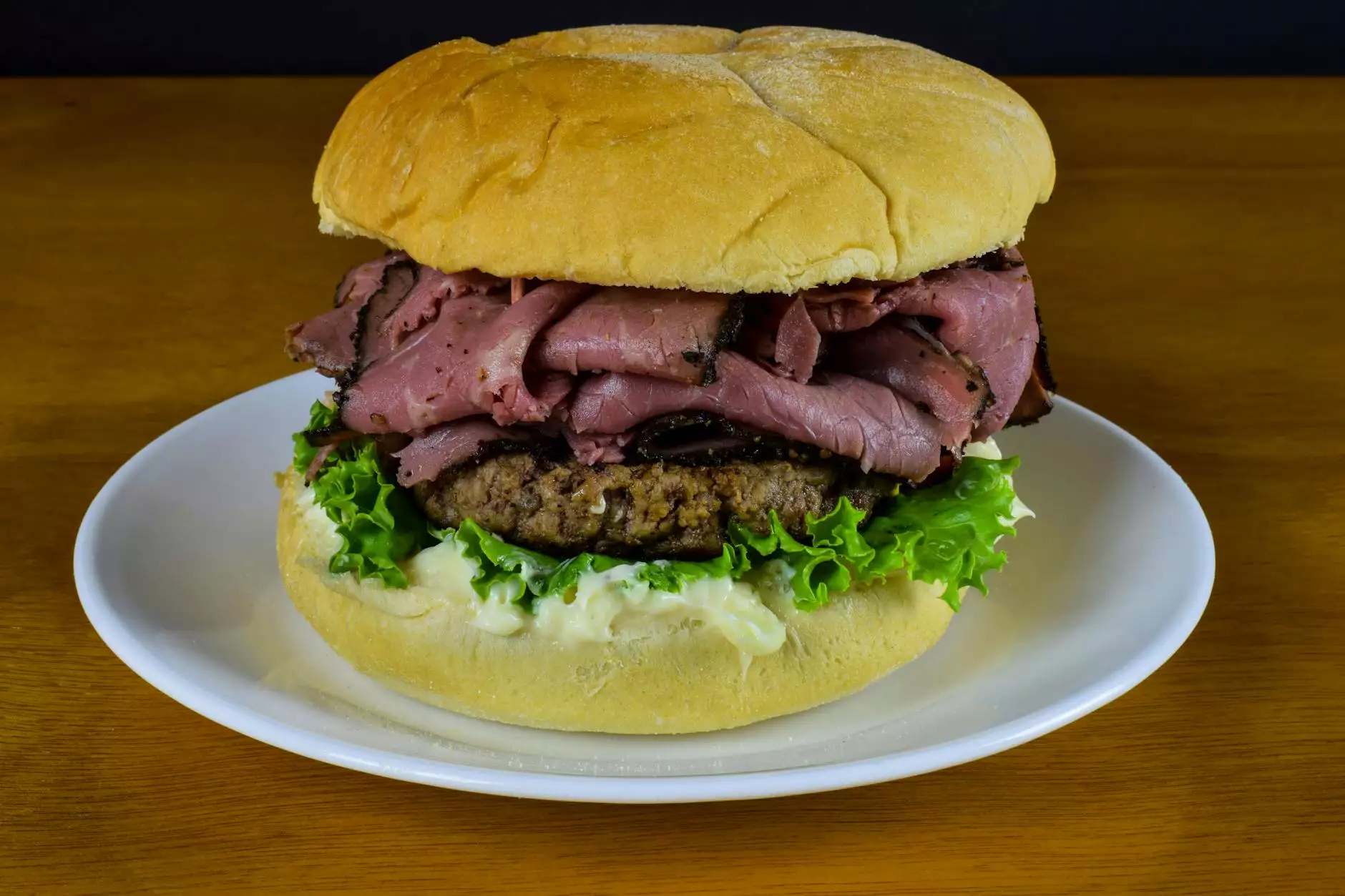Buying Beef Wholesale: A Comprehensive Guide to Success in the Meat Industry

The meat industry is a vibrant and crucial sector that continuously evolves to meet consumer demands and market trends. For business owners in the meat shops category, understanding the nuances of buying beef wholesale is essential for maintaining a competitive edge, optimizing profitability, and ensuring product quality. In this article, we will explore the ins and outs of purchasing beef at wholesale prices, including supplier selection, pricing strategies, and market dynamics, with valuable insights for businesses like UY Meats.
Understanding the Wholesale Beef Market
The wholesale beef market is a complex ecosystem that encompasses a variety of factors affecting pricing, quality, and availability. Gaining a thorough understanding of this market is the first step in ensuring successful beef purchasing.
The Importance of Beef Quality
When it comes to beef, quality is paramount. Premium cuts can significantly impact your business reputation and customer satisfaction. Here are some key factors that determine beef quality:
- Marbling: The intramuscular fat that contributes to flavor and tenderness.
- Age: Younger animals typically yield more tender cuts.
- Breed: Different breeds offer distinct flavors and textures.
- Feeding Practices: Grass-fed versus grain-fed can alter taste profiles.
Choosing Reliable Suppliers
Finding trustworthy suppliers is crucial when buying beef wholesale. A reliable supplier will provide consistent quality and timely deliveries, which are essential for maintaining your business's reputation and operational efficiency. Consider the following steps to ensure you partner with the right suppliers:
Research and Recommendations
Start by conducting thorough research. Look for suppliers with a strong reputation in the industry. Here’s how to go about it:
- Online Reviews: Check reviews and ratings on platforms that specialize in food products.
- Industry Connections: Network with other meat shop owners for recommendations.
- Trade Shows: Attend industry trade shows to meet suppliers in person.
Conducting a Supplier Audit
Before finalizing any agreements, a supplier audit can provide insights into their operations and compliance with food safety standards. Consider the following:
- Check for relevant certifications (e.g., HACCP, USDA).
- Inquire about their sourcing practices.
- Visit their facilities, if possible, to assess cleanliness and organization.
Understanding Pricing Structures
Price is a critical factor when buying beef wholesale. Therefore, understanding the factors that influence pricing in the meat industry will enable you to negotiate better deals and manage your budget effectively.
Market Dynamics
The wholesale beef market is influenced by various dynamics, including:
- Supply and Demand: Prices can fluctuate based on availability and consumer demand.
- Seasonality: Certain cuts may be more expensive during holidays or peak seasons.
- Import Tariffs: Tariffs on imported beef can affect wholesale prices.
Negotiation Tactics
When negotiating prices with suppliers, consider the following tactics to secure the best deals:
- Bulk Purchases: Negotiate discounts based on the volume of your orders.
- Long-Term Contracts: Suppliers may offer better pricing for committed contracts.
- Alternative Cuts: Sometimes switching the cuts you purchase can lead to savings.
Creating a Strong Relationship with Suppliers
Building and maintaining a good relationship with your suppliers can lead to more favorable terms and better service. Here are some tips for nurturing these relationships:
- Consistent Communication: Regular check-ins can help address potential issues promptly.
- Feedback: Provide constructive feedback on products and services.
- Partnership Mindset: Treat suppliers as partners rather than just vendors.
Marketing Strategies for Your Meat Shop
Once you've secured suppliers and established pricing, it's time to focus on marketing your meat shop. Here are effective strategies to drive traffic and sales:
Highlighting Quality and Sourcing
Consumers are increasingly interested in where their food comes from and how it is produced. Emphasize the quality and sourcing of your beef:
- Transparent Sourcing: Share information about suppliers and production practices.
- Quality Certifications: Display any certifications that confirm product quality.
- Storytelling: Use narratives about the beef, the farms, and the people behind your products.
Leveraging Online Presence
In today’s digital age, having a strong online presence is essential for any business. Here are ways to leverage this to your advantage:
- Website Optimization: Ensure your website is user-friendly and optimized for search engines.
- Social Media Marketing: Use platforms like Instagram and Facebook to showcase your products visually.
- Email Marketing: Keep your customers informed about new arrivals and special promotions.
Understanding Regulatory Requirements
Operating a meat shop involves adhering to numerous regulations to ensure food safety and quality. Familiarizing yourself with these regulations is vital:
Local Health Codes
Each region may have specific health codes governing how meat is processed and sold. It's crucial to:
- Stay updated on local health codes and compliance requirements.
- Ensure your facility meets necessary safety standards.
Labeling Regulations
Be aware of labeling regulations that govern how products are identified and marketed. This can include:
- Ingredients and nutritional information.
- Origin labeling to inform consumers where the meat is sourced.
Embracing Sustainability in the Meat Industry
Many consumers are becoming more environmentally conscious, leading to a growing interest in sustainable practices in the meat industry. Consider incorporating sustainability into your business model by:
- Sourcing from Sustainable Farms: Partner with farms that practice responsible farming.
- Reducing Waste: Implement strategies to minimize waste in your operations.
- Engaging with the Community: Support local initiatives and promote sustainable food choices.
Conclusion: A Pathway to Success
In conclusion, buying beef wholesale is a fundamental aspect of operating a successful meat shop. By understanding the wholesale market, selecting reliable suppliers, employing effective pricing strategies, and leveraging marketing effectively, you can build a thriving business.
Moreover, as trends in sustainability and consumer preferences evolve, staying adaptable and informed will ensure that your meat shop not only meets but exceeds the expectations of your customers. With the right approach, your business can establish itself as a leader in the industry, paving the way for long-term success.
For meat shop owners looking for premium quality beef and reliable wholesale supply, visit UY Meats today to learn more about our offerings.









